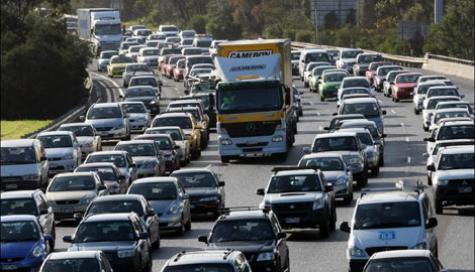In a perfect world, we’d all use public transport, there would be one car per household and we’d use vehicles sparingly for special occasions. It wouldn’t make the car manufacturers happy, but it would be better for the environment, it would probably be better for our stress levels and is likely to be kinder on our hip pocket.
But for those for whom the car – or cars – are a practical necessity of life, here are some top tips for savings in their running and operation.
Driving
1. Avoid idling. Think about it. You’re getting nowhere but it costs money. The best way to warm up a vehicle is to drive it. No more than 30 seconds of idling on winter days is needed. Anything more simply wastes fuel and increases emissions.
2. Avoid aggressive driving, such as speeding, rapid acceleration, and hard braking, which can lower your highway fuel usage by up to 33% and your city mileage by 5%.
3. Avoid high speeds. Above 110kph in most vehicles (which, by the way, is the speed limit) sees fuel efficiency drop significantly.
4. Avoid keeping heavy items in your car. It’s not supposed to be somewhere to store the household including the kitchen sink! Extra weight increases your fuel costs.
5. Combine errands. Several short trips, each one taken from a cold start, can use twice as much fuel as one trip covering the same distance when the engine is warm.
6. If you really can’t use public transport for work, at least check out the options for carpooling. Many cities have transit lanes for 2-4 passengers. These are usually less congested, which means you will get to work and home faster and more refreshed!
Car maintenance
7. Use the grade of motor oil your car's manufacturer recommends. Using a different motor oil can lower your fuel efficiency by 1%-2%.
8. Inflate your tyres to the pressure listed in the owner's manual or on a sticker in the glove box or driver's side door jamb.
9. Get regular maintenance checks to avoid fuel economy problems due to worn spark plugs, dragging brakes, sagging belts, low transmission fluid, or transmission problems.
10. Don't ignore the check-engine light. It can alert you to problems that affect fuel economy as well as more serious problems, even when your vehicle seems to be running fine.
11. Replace clogged air filters on an older car with a carbureted engine to improve fuel efficiency by as much as 10% and to protect your engine.
Other savings
12. Depending on the size of your vehicle, those discounts on fuel from supermarkets really make a difference - especially when added-up over a year.
13. If you live or work near, or pass by, a number of service stations, compare their prices and also check out which day of the week is best. There are generally at least two days where the price drops compared with other days. This can differ from suburb-to-suburb but a 4 cents/litre drop together with a 4 cents/litre supermarket voucher is quite a big saving.
14. Check out other options such as public transport, carpooling, working from home or riding your bike.
15. Choose a vehicle according to your need. Every city in Australia has a suburb or suburbs which are full of people in 4WDs or SUVs who are unlikely ever to need what those cars were built for. And let’s be honest here – mums are the worst offenders. To be brutally frank, if you mostly drive in the city, a smaller hybrid might actually be better for you: it’s more fuel efficient, it’s lighter driving, it’s easier to park.
16. If you really need a vehicle for heavy use, consider a clean diesel vehicle. Diesel engines are quieter, more powerful, and 30%-35% more efficient than similar-sized petrol engines. The new generation of clean diesel vehicles must meet the same emissions standards as regular vehicles.
17. Most car manufacturers also have flexible fuel vehicles (FFVs), which can run on part ethanol-part petrol. If you’re not certain of this, check your owner's manual to find out if your vehicle is an FFV.
18. Consider buying a highly fuel-efficient vehicle. A fuel-efficient, plug-in electric (PHEV), hybrid, or alternative fuel vehicle could cut your fuel costs and help the environment.








 Agree (0)
Agree (0) Disagree (
Disagree (










__small.png)










